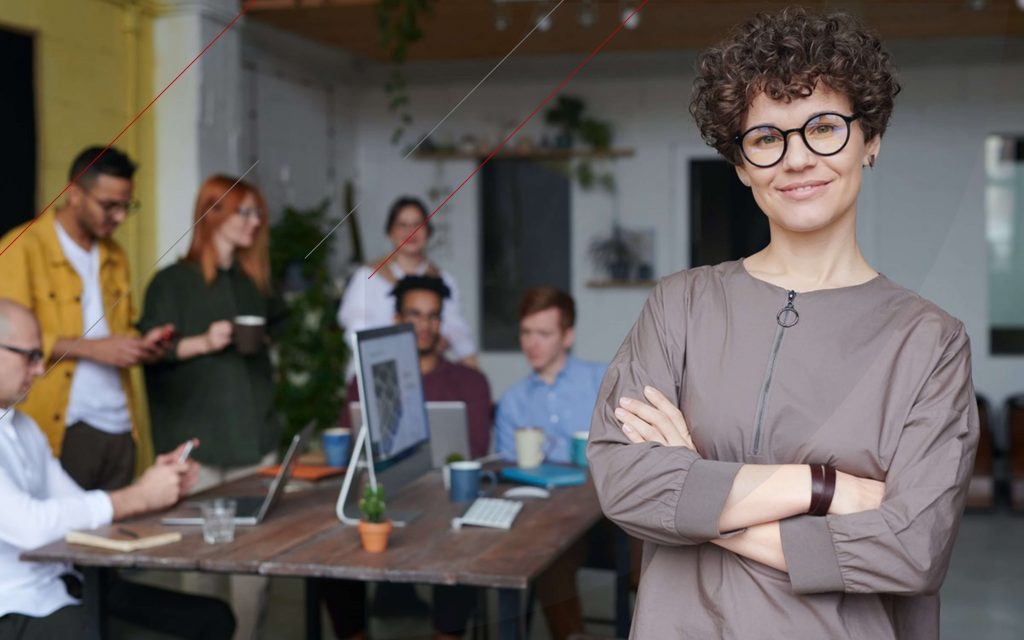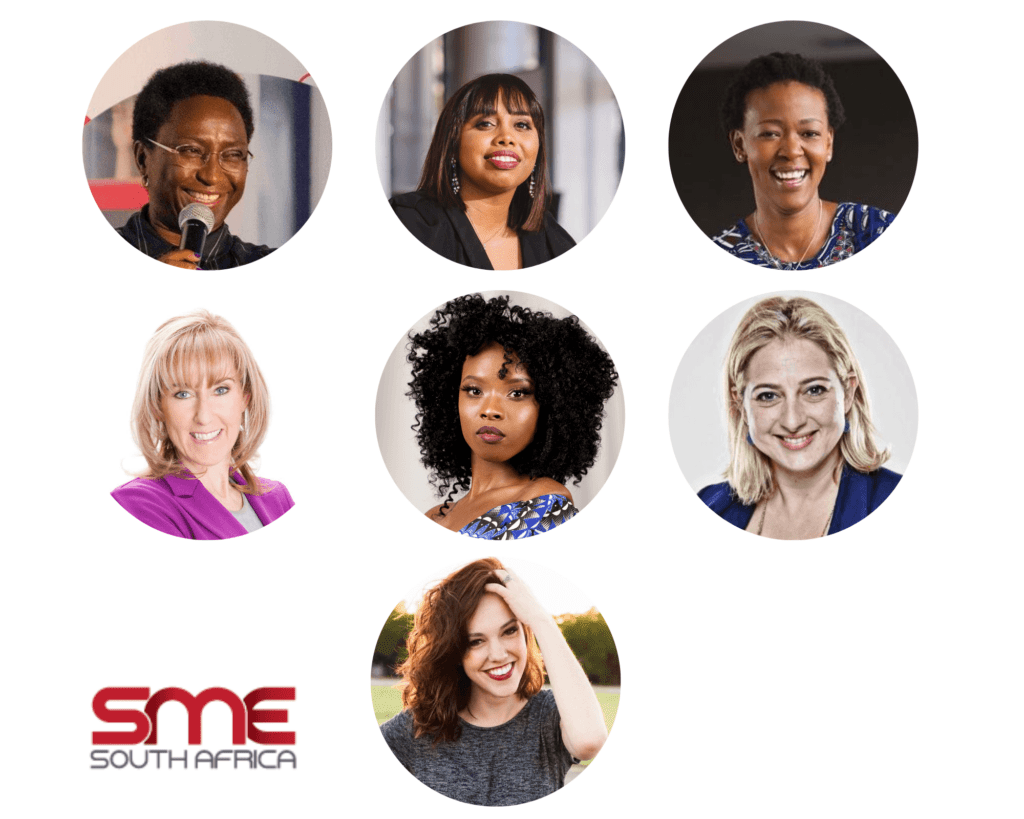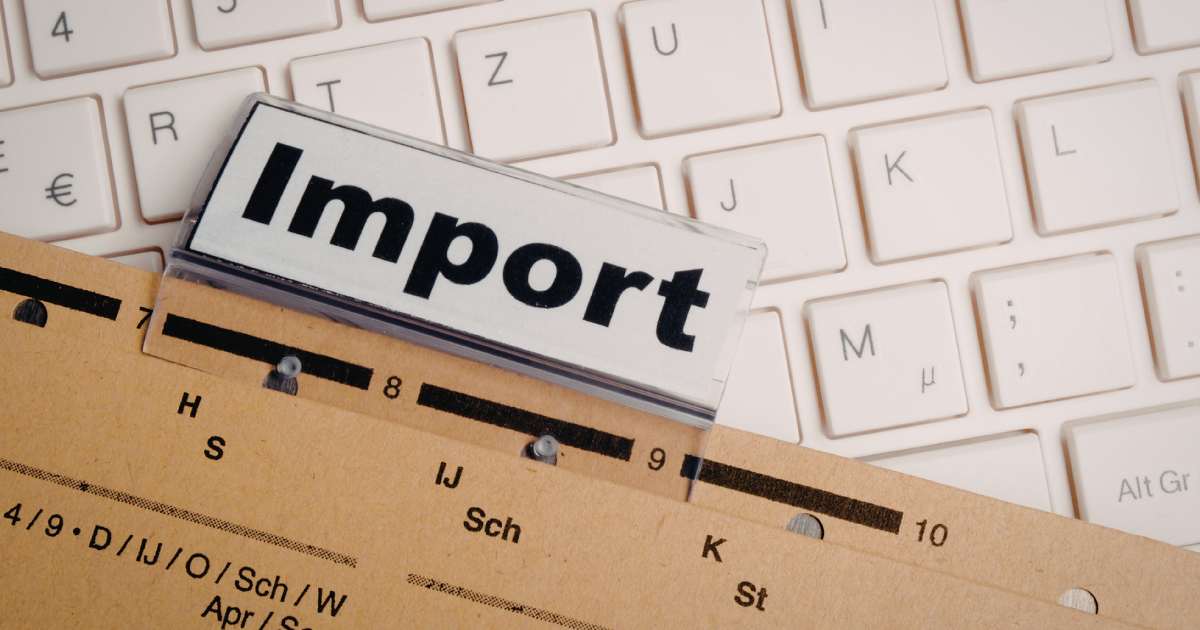This August, SME South Africa’s ‘Breaking the Funding Glass Ceiling’ Series, sponsored by Nedbank, unpacks the funding challenges women entrepreneurs continue to face, explores the innovative ways women entrepreneurs are financing their businesses AND celebrates the funding successes that have helped women build innovative & impactful businesses.

Findings from different studies have shown that women entrepreneurs continue to navigate significant gender-based obstacles. Nowhere is this more evident than with funding.
The capital available to male entrepreneurs is more than twice that of the female entrepreneurs irrespective of whether the business is new or already in existence.
The total financing gap for women in Sub-Saharan Africa has been estimated at USD 42 billion for the whole of Africa, according to a report by the African Development Bank, Affirmative Finance Action For Women In Africa.
The report identifies some of the factors that contribute to this. “Women often lack access to productive resources, including land, property rights, markets and networks to grow their businesses,” reads the report.
“They find it difficult to secure financing from banks and other financial institutions due to inherent biases in the system, such as the lack of appropriately designed financial products, weak institutional capacity and lack of incentives within banks to target and lend to women.”
The funding gap breaks down one’s entrepreneurial spirit – Shanéy Vijendranath
To explore this issue, we interviewed some of the country’s foremost thought leaders, investors, CEOs, founders, and other ecosystem stakeholders.
Part 1 focuses on the challenges faced by women entrepreneurs in Africa and examines their perspectives on the funding, network exclusion and gender-bias challenges faced by women entrepreneurs.

Top row: Irene Ochem, Shanéy Vijendranath, Marang Marekimane; Middle row: Donna Rachelson, Vuyolwethu Dubese, Alexandra Fraser; Bottom row: Kelley Henry. (All pictures: Supplied)
Meet the Women of the Roundtable
- Alexandra Fraser is the co-founder of Dazzle Angels, the country’s first female-focused angel fund with a mission to “solve the radical gender inequality in early-stage investment management and deployment”.
- Kelley Henry is the executive director of the SoGal Foundation, a millennial-focused VC fund with a global network with a mission to close the diversity gap by providing resources, education, and community to underrepresented entrepreneurs worldwide.
- Shanéy Vijendranath is the founder of data analytics platform MomSays, which helps brands engage with new moms by utilising the collective knowledge of thousands of experienced moms in the country. Vijendranath is also the chapter lead for SoGal Johannesburg.
- Irene Ochem is the founder and chief executive officer of Africa Women Innovation and Entrepreneurship Forum (AWIEF), a pan-African women economic empowerment organisation dedicated to unlocking opportunities for women-owned and women-led businesses whilst driving the agenda for women entrepreneurship in Africa.
- Marang Marekimane is the founder of Business Process Mechanics, which assists entrepreneurs in reviewing their business models and automating business processes to build sustainable businesses.
- Donna Rachelson is a branding and marketing specialist, CEO of Branding & Marketing YOU and author of SA’s best-selling book Play to Win: What women can learn from business men. She is an award-winning businesswoman and business investor who advocates for empowering women, corporate go-getters and entrepreneurs. She is also a well-known speaker.
- Vuyolwethu Dubese is a professional in impact and inclusive development and innovation strategy. Over the past five years, she’s served as a Startup Partnerships Lead for Africa for global intelligence firm, Thomson Reuters and as an Impact Acceleration Associate at investment and advisory firm, Impact Amplifier and served on boards.
Q: What are some of the ways that we see gender discrimination being exhibited about women and funding?
Irene Ochem – Venture capitalists and financial providers do not view women-owned businesses seriously. Women get offered smaller amounts of financing or loans.
We have very few women fund managers and investment committee members. Thus, when pitching for funding, women are most of the time faced with an all-male panel. Women are asked tougher and personal question,s which is not usually the case with male entrepreneurs. In certain situations, you get outright harassment that comes in different forms and manners.
Donna Rachelson – Research suggests that women tend to be judged on their performance, while men get rated on their potential. Men are believed to be able to create more influential networks, hold higher-ranking positions and of course, command more money, which is intrinsically linked to higher value. Basically, women end up asking for more but are receiving less.
Kelley Henry – The very simple truth is that women, particularly women of colour, are consistently underestimated, over-mentored, and under-capitalised. With an increasing number of programs aimed at elevating women entrepreneurs, we’ve seen some progress, but funding and access to capital has continued to stall.
The system just wasn’t built for women. As an entrepreneur, accessing capital can be an uphill battle, but for underestimated entrepreneurs, when you factor in that practically every investor you pitch to has no understanding of your perspective or life experiences, the hurdles get that much higher and barriers increase.
Vuyolwethu Dubese – The systematic challenges that women face includes a gendered mirrortocracy of an old boy’s club that leads to a lack of access and knowledge to such opportunities. The shared (and false) opinion of how much of a bigger risk female founders are to invest in and the overt display of not being taken seriously.
Marang Marekimane – What we do not tackle enough is the discrimination from within. How a lack of self-confidence is a form of discrimination. It is what stops most women from applying for funding or participating in forums that decide on how funding is allocated.
This then fuels the perceptions that women do not qualify.
The more confident women are in business and the next steps to grow the business, the less external discrimination is a roadblock. The confidence drives their persistence to gain access to what they need to achieve their goals.
If we doubt our own eligibility to apply, and do not participate in interrogating how funding is allocated or create our own forums, the discrimination will continue.
Shanéy Vijendranath – Many still don’t take moms seriously in this space because how can she run a startup and take care of kids, it’s impossible right?
Kelley Henry – It comes down to a person’s bias. As humans, we all have a set of biases based on our own personal lived experiences and perspectives. Having the bias in itself is not necessarily wrong – we all have them. It’s human nature to have a better understanding of and affinity for people who are most like you. It’s the refusal to acknowledge how these biases are one-sided and create systems of power imbalances that become problematic. It can be harassment and overt exclusion at one end of the spectrum or more subtle, perhaps unintentional but absolutely harmful microaggressions at the other end of the spectrum.
Alexandra Fraser – What I don’t want to say is that your funding application was rejected because you are a woman. The reality is whether you are a male or female or a combined founder team, you will apply for a lot of funding sources and probably won’t get it for a variety of factors including we have a very small entrepreneurship ecosystem and not that many funding sources. As an angel VC for every good 100 business applications you get, you invest in one.
But initiatives that are put in place are not always designed with women in mind. I think there is an unconscious bias.
Q: How do we see discrimination against women entrepreneurs show up differently in particular sectors/industries?
Shanéy Vijendranath – From a personal experience, I found it difficult to get funding for my business. Many think that women cannot build tech companies or know nothing about building a startup.
Kelley Henry – There is a common misconception that women aren’t building in technical and/or B2B spaces, which simply isn’t true. While there are many women building consumer-focused companies, these “deeper tech” spaces are not reserved for men. In the 2019-2020 SoGal Global pitch competition, we received over 1700 startup applications from around the world. Out of these startup applications, 75% were women founders, about 50% were consumer-facing and 50% based in “deep tech” or B2B spaces.
Q: Why is the funding gap so detrimental to female entrepreneurship and the greater economy?
Irene Ochem – The funding gap and imposed barriers widely affect women’s ability to take advantage of economic opportunities and access resources to enable them start, build and grow large profitable businesses. Women operate with low profit margins. On the other hand, unlocking the economic potential of women makes economic and social sense. It increases women’s bargaining power, positively affects economic growth and national incomes, makes for greater job and wealth creation and ultimately benefits the greater economy leading to a more inclusive and prosperous Africa.
Shanéy Vijendranath – Culture and society are often unsupportive of women’s entrepreneurship, and women sometimes feel inadequate. This and the perception out there is the reason that many women are afraid to step out of their comfort zone and thus the world is robbed of great concepts and amazing ideas. Most women are afraid to start out there because their concepts are rejected. They are afraid to apply for loans. The funding gap breaks down one’s entrepreneurial spirit.
Kelley Henry – People who reflect their communities are best equipped to solve some of the world’s largest unmet needs. The more personally an entrepreneur understands the market they’re trying to serve, the better they will be at capturing that target market. Because women make up about half of the global population, we should be the entrepreneurs building, scaling, and owning these businesses. Women entrepreneurs have proven to outperform men in terms of returning capital, so even if it’s purely a business decision (and it’s clearly much more than that), investing in women just makes sense.
We also must address intersectionalities at play. Black women are the fastest growing demographic of entrepreneurs out of any throughout history and best equipped to build companies that solve for unmet needs, yet still face the greatest hurdles to accessing capital, facing both sexism and racism. Entrepreneurship cannot be the great equaliser until we address systems of inequity to accessing resources. It’s in all of our best interests.
Alexandra Fraser – Female entrepreneurs tend to have a very strong purpose tied to their businesses. Not to say that male entrepreneurs don’t but women build businesses that look at empowering other women and creating jobs.
Think of Aisha Pandor (co-founder and CEO of Sweepsouth). Purpose for them is they believe everyone should have a job and be economically active and the opportunity to access health benefits.
Successful women also tend to keep investing in their staff, community, not to say that men don’t do the same.
SEE ALSO: Women & Funding Round Table Part 2 – Solutions: ‘We Need More Inclusive Financing Models’





